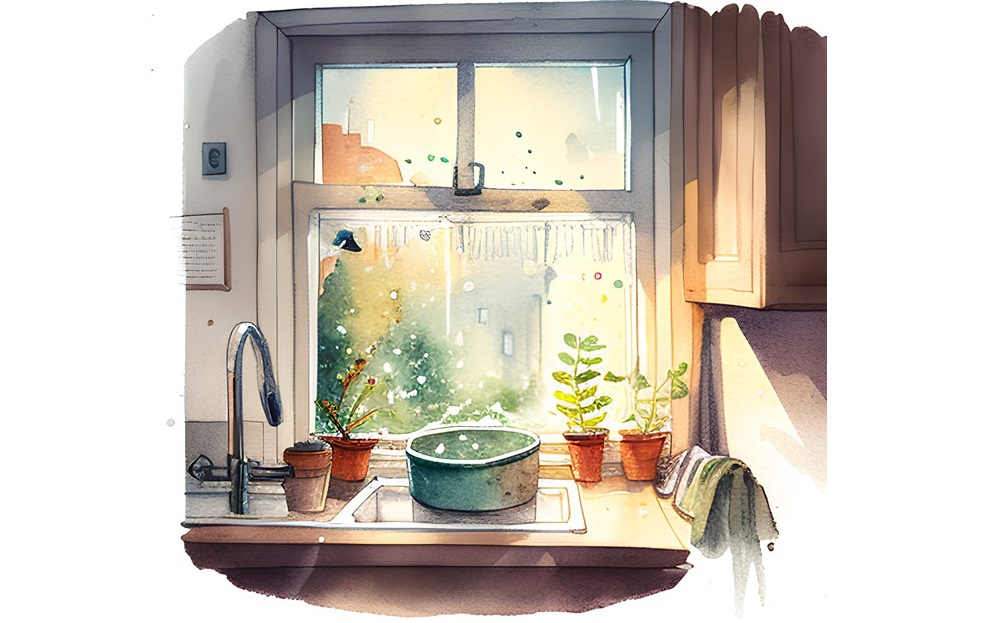
A simple life is the life for me.
I don’t want much—a lovely little house that’s perfectly suited for Tom and me . . . a life that isn’t overwhelmed by tasks, errands, and a To Do List a mile long . . . a life that allows space for what we enjoy doing and gives us both room to breathe . . . a quiet and peaceful life, without drama, where we can work happily on creative projects, travel a little, and spend quality time together and with the people we care about most.
At this stage of our lives, I feel we’ve earned the right to slow down and simplify.
How about you? Are you onboard for a more meaningful life?
The way to simplicity
Having a simple life requires taking a minimalist approach and purging the physical and mental clutter that tends to weigh you down. Here’s how to do it:
- Physical clutter. Look around your home. How much of the stuff in it do you really need? Ask yourself: Is that item really necessary? Do I use it regularly? Could I live without it? If the item contributes positively to your lifestyle, brings happy memories, and you believe it to be useful or beautiful, it is worth keeping. Everything else, including all that heirloom stuff your kids don’t want, is clutter.
Take baby steps to get rid of the clutter. One room at a time. Empty drawers and cabinets. Put everything into cardboard boxes . . . and put back only those things you absolutely need and/or love. Do the same thing with closets. Be ruthless. If you haven’t worn something in years, don’t wait until it comes back into style or you fit into it again. Get rid of it. And don’t hold onto things thinking you might need them someday. Chances are, you won’t.
- Mental clutter.
- Commitments. Having a lot of commitments not only keeps you super busy, but it sometimes makes your life more chaotic than it needs to be. List all of your commitments—work, meetings, clubs, organizations, hobbies, family stuff, social media—and make an honest assessment of each thing on the list. Ask yourself: Is this something I honestly enjoy doing? Is it in line with my priorities and goals? How would it affect my life if I stopped doing it? Editing commitments frees up time and creates space in the day.
Start by removing the one thing on the list you enjoy doing the least. Cut it out, at least for a couple of weeks to see if you can get along without it. Revisit the list and see if you can cut something else out. Edit mercilessly. Cut out everything that’s not necessary, keeping only those things that are really important.
- Debt. Owing money for a mortgage, car, or credit cards can be soul crushing. It’s always sitting at the back of your mind that you have a monthly bill coming due. This is the kind of commitment that weighs heavily but, with effort, can be eliminated.
Strive to be debt-free. It’s never too early to start. Stop spending . . . spend less . . . or be more selective with the things you buy. Use credit cards only if you can pay them in full at the end of the month. On recurring debt, make double payments if you can. Start with one creditor and work your way through the rest. It might mean struggling for a time, but the sense of relief and happiness you get makes the struggle worth it.
- Commitments. Having a lot of commitments not only keeps you super busy, but it sometimes makes your life more chaotic than it needs to be. List all of your commitments—work, meetings, clubs, organizations, hobbies, family stuff, social media—and make an honest assessment of each thing on the list. Ask yourself: Is this something I honestly enjoy doing? Is it in line with my priorities and goals? How would it affect my life if I stopped doing it? Editing commitments frees up time and creates space in the day.
Clutter is physically and emotionally draining. It’s a constant reminder that tasks need to be done, bills need to be paid, paperwork needs to be completed, schedules need to be kept, errands need to be run, responsibilities need to be met. Sometimes, there’s not enough time in the day to do it all.
When you simplify your life, you’re cutting back on the complexity of what you do and what you own. Minimalism takes it a step further. Not only do you take things from complex to simple, but you focus on what you value most, keeping only those things that are essential and removing everything else.
Honestly, less IS enough.
Reducing your possessions, downsizing your schedule, eliminating debts, and finding more space for meaningful moments in your life are all worth pursuing.
You will thank yourself for doing it.






Share Your Thoughts